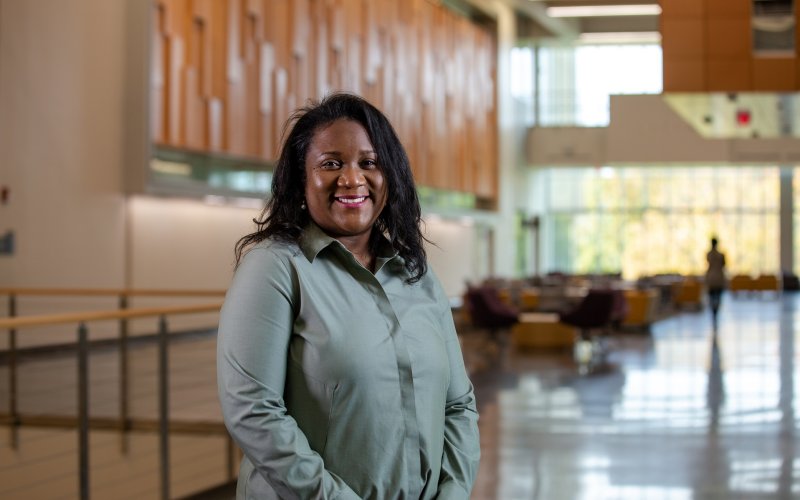CEHC Disaster Scientist Testifies Before U.S. Senate Special Committee on Aging

By Mike Nolan
ALBANY, N.Y. (June 20, 2023) — DeeDee Bennett Gayle is focused on leading research that helps reduce disaster vulnerabilities for our most marginalized populations, including older adults and people with disabilities.
Last week, Bennett Gayle, an associate professor at the College of Emergency Preparedness, Homeland Security and Cybersecurity (CEHC), offered her expertise to Congress.
Bennett Gayle was a featured witness at a hearing hosted by the U.S. Senate Special Committee on Aging on Thursday. It included testimony from four expert witnesses who shared insight on the critical need to include older adults and people with disabilities in the disaster planning, response and recovery process.
“While all Americans are affected by disasters and emergencies, older adults and people with disabilities are disproportionately affected,” said U.S. Sen. Bob Casey, chairman of the U.S. Senate Special Committee on Aging, during the opening remarks of Thursday’s hearing.
“The most devastating of recent disasters, of course, is the COVID-19 pandemic. More than 75 percent of COVID-19 deaths — some 857,000 — were adults over the age of 65… At the same time, those with developmental disabilities were nearly three times more likely to die from COVID-19. While the pandemic has had a disastrous effect on older adults and people with disabilities, natural and man-made disasters also have a disproportionate effect on them.”
Bennett Gayle was highlighted by Sen. Casey for her research on emergency management, socially vulnerable populations, and emergency communication. During her testimony, she shared the story of her grandmother, who lived past age 96 and represents a shift in the demographics of older adults.
“We are aging healthier, longer, and living more independently,” Bennett Gayle said. “Our older adult population is also more racially and ethnically diverse, overwhelmingly women, and is rapidly increasing. For example, my grandmother lived to be just over 96. Though her mobility slowed as she aged, her health was far superior to most in our family… While this is great, we should be concerned that older adult populations are not actively included in disaster management.”
In her recommendations, Bennett Gayle pointed to the need to change how we think about and understand disasters, along with shedding biases about aging and ability. She also suggested the need to make more investments before a disaster occurs.
“With older adults living longer, healthier, independent lives and working well past our standard classification of ‘older adult,' it is essential to consider their unique needs. Include them in developing preparedness plans, listen to their experiences, and learn from them," Bennett Gayle said.
“We should proactively introduce legislation to increase preparedness and our individual understanding of hazards," she added. "The issues and lessons learned across most of our major disasters are similar… communication, coordination, community engagement, and reaching vulnerable populations are among the most significant issues. This means that sponsored studies should also focus on remedying these challenges and encourage knowledge transfer between research and workforce.”
In 2021, Sen. Casey, along with 11 other congressional colleagues, including New York Senator Kristen Gillibrand, introduced the Real Emergency Access for Aging and Disability Inclusion (READDI) for disasters act. The bill would ensure that people with disabilities and older adults are included in disaster preparation, response and recovery efforts. It would also ensure that the civil rights of older adults and people with disabilities are not violated during disaster emergencies.
Other witnesses at Thursday’s hearing included Jonathan Bydlak, director of the governance program at the R Street Institute, Mahshid Abir, an emergency physician and health services researcher at the RAND Corporation and Annie Lloyd, a disability policy advocate.




